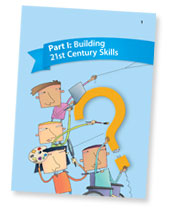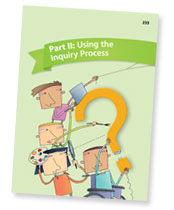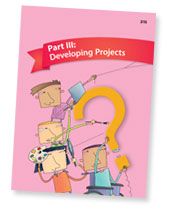The only way to teach critical thinking is to have students think critically about something. The only way to teach problem solving is to present students with problems that they must solve. That's why teaching 21st century skills is a perfect match for any content-area class. Critical thinking deepens students' understanding of science, and science sharpens students' critical thinking. Problem solving gives students a greater understanding of civics, and civics provides students with hundreds of problems to solve. Inquire: A Guide to 21st Century Learning is designed to make this connection.
Specific Strategies for Each 21st Century Skill

The first part of Inquire teaches specific strategies for critical thinking, creative thinking, problem solving, communicating, collaborating, building arguments, and all the literacy skills. Every time a student learns a new strategy, you can immediately apply it to the material that you are studying. Get students to compare and contrast scalene and right triangles. Have them think metaphorically about a character in a novel. Ask them to use problem solving to measure the size of a building.
21st Century Skills in the Inquiry Process

The second part of Inquire builds on what students have learned by using the 21st century skills within the context of the inquiry process. Students think critically and creatively as they ask questions about geometry and algebra. They solve problems and communicate as they plan experiments in science. They use all kinds of thinking and literacy skills as they research history and culture. In any class, students need their best talents to create something, evaluate it, improve upon it, and put it to use.
21st Century Skills and Inquiry in Student Projects

The final part of Inquire builds on the first two: students learn content while creating projects. In the process, they are sharpening their 21st century and inquiry skills. Projects help students deeply engage in a subject and create something to demonstrate their learning.